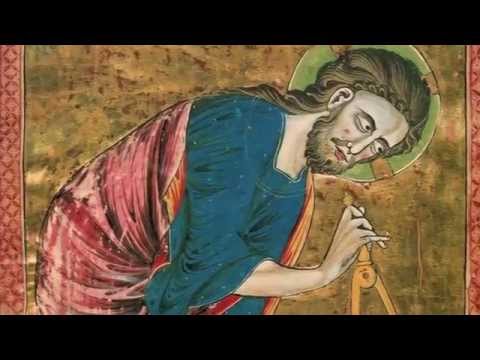Glorying In Deprivation
Our God and Father overflows with goodness toward us. He desires that we be abundantly supplied unto all completeness and fulness, prospering in every dimension of life.
Yet, those of us who know something of His ways have come to realize how strategically He uses deprivation in our lives, not, as some might presume, because He is displeased with us and wants to make that point by denying us life’s satisfactions, but because deprivation and supply work together to the end that ultimately, according to His will, “no good thing” shall be withheld from us.
“He, who did not spare His own Son, but delivered Him up for us all, how will He not also with Him freely give us all things?”
How sweetly those words fall upon our ears, and how instantly our spirit with His witnesses to their truth. But how do we reconcile the apparent incompatibility between His delight in giving and His ofttimes non-negotiable denials? Many times He seems to be utterly neglectful of our most basic needs, and untouched by the physical, mental and emotional pain we bear.
Besides, we see others suffering and we are deeply moved, but He, of infinite resources, far more than enough for the challenge, makes no move to bring them relief.
You say, “Oh but He does, I’ve seen Him heal the sick, bind up the broken-hearted, and deliver captives.” Yes, I too have seen Him bare His mighty arm of deliverance many times and bring relief from suffering and need in miraculous ways, but I have also seen, in my own life and the lives of others, hours, days, weeks and years, even many, many years drag on with little, if any, respite from incessant pain and sorrow, not to mention the experience of having Him bring an end to one long night of suffering and usher us into realms of glory, only to have such an experience be followed by another gut-wrenching tribulation.
Some who read this have received desperately needed provision and before they are even able to settle into the enjoyment of the blessing have it taken away in a way so unexpected and sudden as to be bone-jarringly traumatic.
Those who foolishly, immaturely and dogmatically insist that our lack of faith is the cause of all protracted affliction, that God would certainly end our suffering immediately if only we would desist in our unbelief; such shallow-hearted, and shallow-minded ones hardly deserve a hearing. There are those of very little faith, if any, who have enjoyed the Lord’s abundant provision, while others, rich in faith, rich in mountain-moving faith, have to live with a level of such disconcerting deprivation, as to be pushed to the edge of despair.
If the love of God simply means that God would like to bring relief to us if only we would let Him, or as some would put it, if only “we would get in a place where God can bless us,” then that love is an impotent love, a sentimental, wishful love that has only marginal effect on the human condition.
BUT if that love has a purpose so sublime, so wonderful, so beyond our ability to ask or conceive of, and if that love, in it’s wisdom, must incorporate interim (yes, interim, for what seems endless to us is but a passing moment compared with eternal ecstasy) suffering into its plan in order to plow our earth to receive and bear the fruit of the Seed of His fulness, Christ Jesus our Lord, then that is another matter.
-John R. Gavazzoni-
Our God and Father overflows with goodness toward us. He desires that we be abundantly supplied unto all completeness and fulness, prospering in every dimension of life.
Yet, those of us who know something of His ways have come to realize how strategically He uses deprivation in our lives, not, as some might presume, because He is displeased with us and wants to make that point by denying us life’s satisfactions, but because deprivation and supply work together to the end that ultimately, according to His will, “no good thing” shall be withheld from us.
“He, who did not spare His own Son, but delivered Him up for us all, how will He not also with Him freely give us all things?”
How sweetly those words fall upon our ears, and how instantly our spirit with His witnesses to their truth. But how do we reconcile the apparent incompatibility between His delight in giving and His ofttimes non-negotiable denials? Many times He seems to be utterly neglectful of our most basic needs, and untouched by the physical, mental and emotional pain we bear.
Besides, we see others suffering and we are deeply moved, but He, of infinite resources, far more than enough for the challenge, makes no move to bring them relief.
You say, “Oh but He does, I’ve seen Him heal the sick, bind up the broken-hearted, and deliver captives.” Yes, I too have seen Him bare His mighty arm of deliverance many times and bring relief from suffering and need in miraculous ways, but I have also seen, in my own life and the lives of others, hours, days, weeks and years, even many, many years drag on with little, if any, respite from incessant pain and sorrow, not to mention the experience of having Him bring an end to one long night of suffering and usher us into realms of glory, only to have such an experience be followed by another gut-wrenching tribulation.
Some who read this have received desperately needed provision and before they are even able to settle into the enjoyment of the blessing have it taken away in a way so unexpected and sudden as to be bone-jarringly traumatic.
Those who foolishly, immaturely and dogmatically insist that our lack of faith is the cause of all protracted affliction, that God would certainly end our suffering immediately if only we would desist in our unbelief; such shallow-hearted, and shallow-minded ones hardly deserve a hearing. There are those of very little faith, if any, who have enjoyed the Lord’s abundant provision, while others, rich in faith, rich in mountain-moving faith, have to live with a level of such disconcerting deprivation, as to be pushed to the edge of despair.
If the love of God simply means that God would like to bring relief to us if only we would let Him, or as some would put it, if only “we would get in a place where God can bless us,” then that love is an impotent love, a sentimental, wishful love that has only marginal effect on the human condition.
BUT if that love has a purpose so sublime, so wonderful, so beyond our ability to ask or conceive of, and if that love, in it’s wisdom, must incorporate interim (yes, interim, for what seems endless to us is but a passing moment compared with eternal ecstasy) suffering into its plan in order to plow our earth to receive and bear the fruit of the Seed of His fulness, Christ Jesus our Lord, then that is another matter.
-John R. Gavazzoni-
Upvote
0



